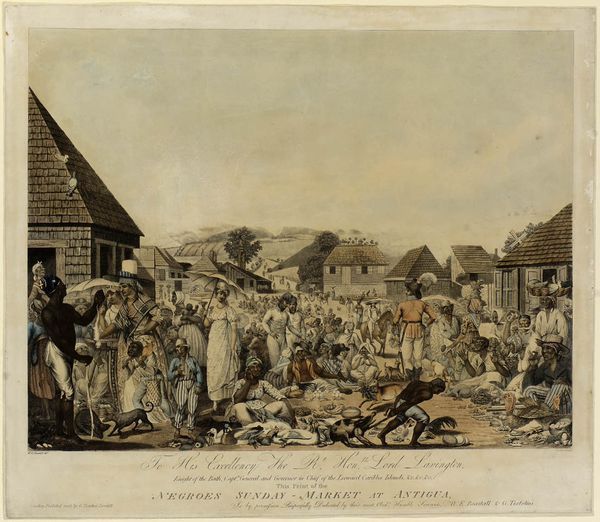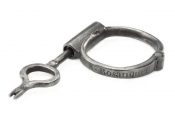This etching dates from 1806 and shows a Sunday market run by the enslaved in Antigua. Slaves had little control over their lives but they were sometimes able to shape and improve some aspects of their living conditions. On many plantations they were expected to use the little free time they had to grow crops on small areas of poor-quality land, known as provision grounds. In this way the enslaved could supplement the meagre provisions provided by their owners.
To reduce their costs plantation owners were often willing to encourage the slaves to provide for themselves. Some of this extra food was sold at ‘slave markets’, usually held on Sunday, which was the workers’ day off. In this picture there are European people and free Africans browsing through the market, which was an important part of the local economy. By growing and selling crops at the market, enslaved people were able to have a say in their own lives. And by saving the money they made, some, like Equiano, were able to buy their freedom from their masters.
© National Maritime Museum, Greenwich, UK
Accession reference: National Maritime Museum, ZBA2594


